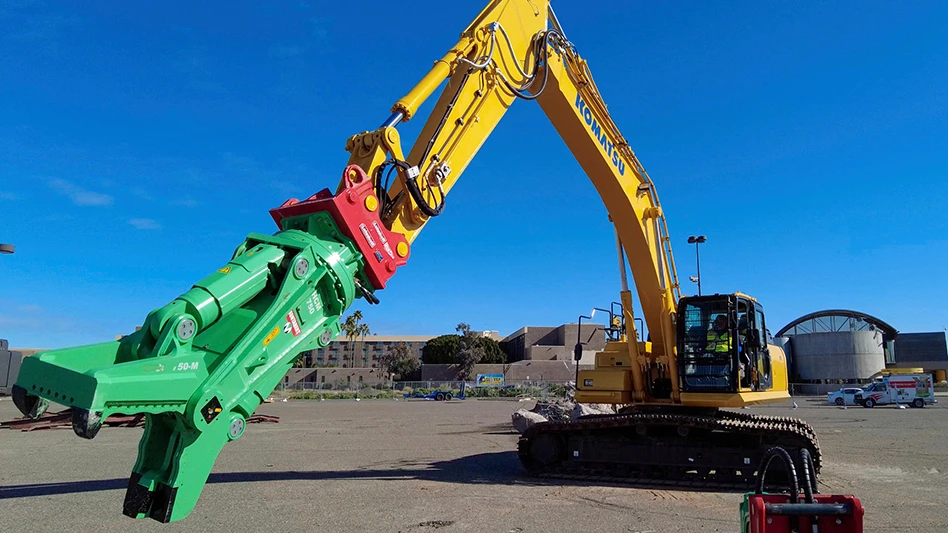
Photo provide by Rockster International.
Demolition contractor Martin Meier Erdbau, based in Velburg in the Bavarian region of Germany, says that as the firm’s demolition projects increased steadily over the years, and the hauling of debris became more and more expensive, the next logical step was to purchase a crushing plant so the company can recycle material flexibly at any time.
Rockster Austria International GmbH, based in Neumarkt, Austria, says it offered the proper solution in the form of its R900 impact crusher.
“By purchasing our own mobile crusher, we are now not only able to recycle the demolition materials from our construction sites immediately, but can also earn income from renting our crushing plant," says Martin Meier.
Being able to transport the unit with one of the company’s own trucks is particularly advantageous for the demo firm, he says. The R900 has transport dimensions of 9.6 meters (31.5 feet) in length, 2.5 meters (8.2 feet) in width and 3.2 meters (10.5 feet) in height, while weighing in at 25.5 metric tons (28 tons).
The company founded by Martin Meier in 1977 now has 16 employees and a fleet of approximately 50 construction machines and trucks. In addition to demolition, the company is involved in hauling and earthmoving. Until the Rockster R900 was purchased at the end of 2019, the company outsourced the recycling of demolition materials.
Martin Meier’s son Max, along with Martin Loschge, are the main operators of the crushing plant. Says Max, “I particularly like the easy handling of the crusher. I can control the speed of the vibrating chute in the feed bunker and the main discharge belt as well as the rotor and motor speed comfortably from the excavator via radio remote control.”
Adds Max, “The end material is nice and coarse-grained and therefore very stable and compact when installed.” The company mainly uses its recycled aggregate output as a substructure for outbuildings, private houses or in-road construction.
The Rockster R900 has a hydrostatic drive and double impact rocker design, which allows “a very precisely defined final grain size” to be generated without an additional screening system. The two impact rockers are set separately, which means that in the event of an overload situation in the crushing chamber, the upper impact rocker opens but the lower one remains in the set gap position. This can prevent the creation of oversized material.
The R900, which can crush about 200 tons of material per hour to a size of minus 56 millimeters (2.2 inches) is hailed by Martin Meier as “a well-thought-out machine with a price to performance ratio that is just right.”
Latest from Construction & Demolition Recycling
- Cielo investor requests annual meeting
- CDE sets up washing plant on Long Island, NY
- NWRA: NIOSH cuts a step in the wrong direction
- Ferrous price hikes could be poised to pause
- Northstar secures 15-year lease extension for asphalt shingle recycling facility
- Greenwave asks for SEC filing extension
- Construction Plastics Initiative lines up projects
- ShearCore adds dealership group in Canada





